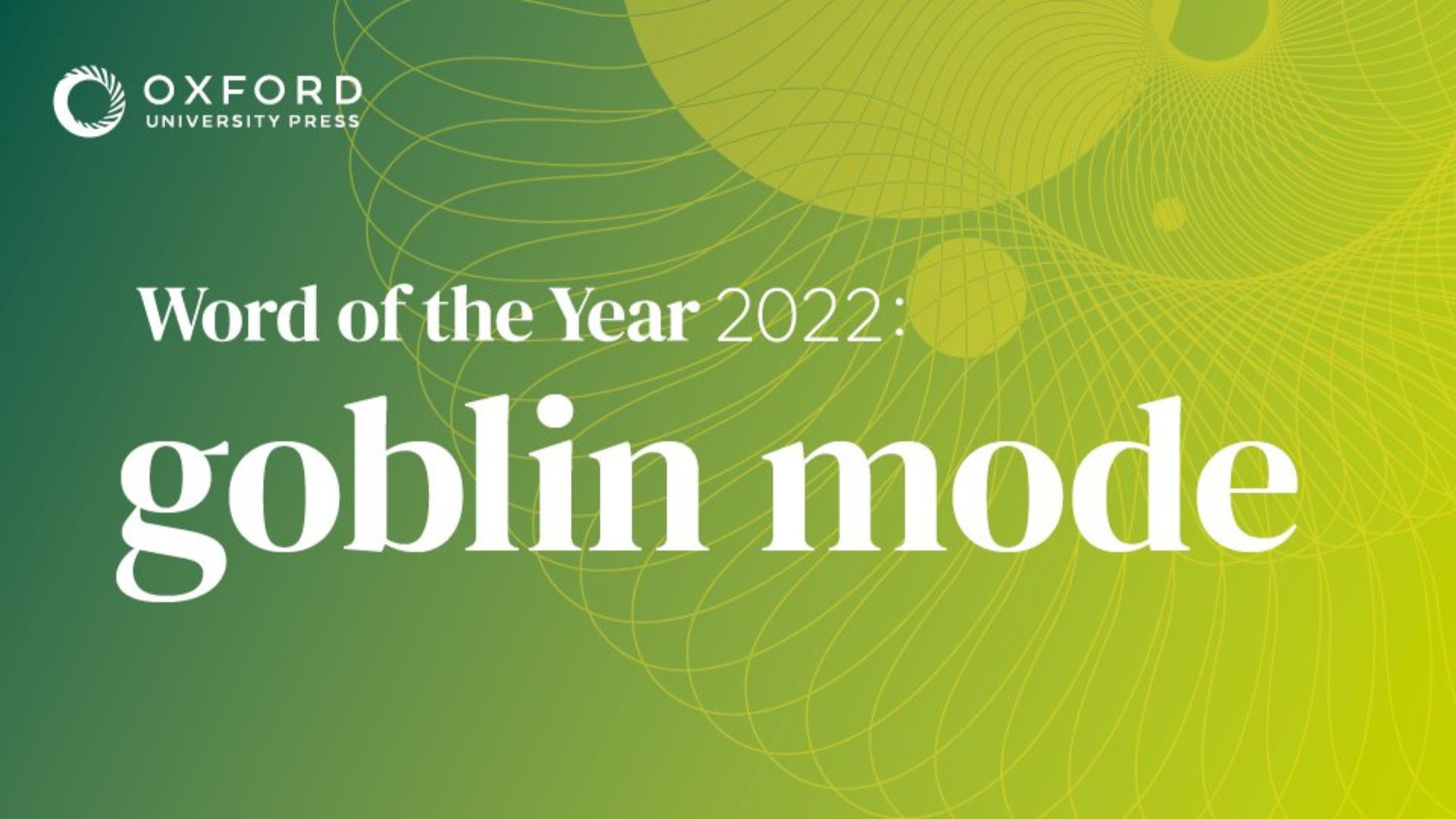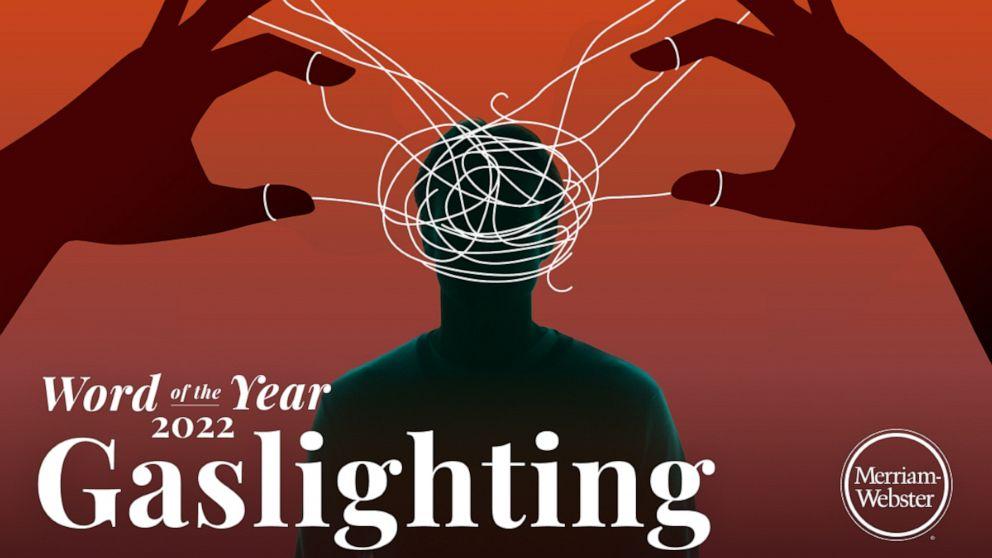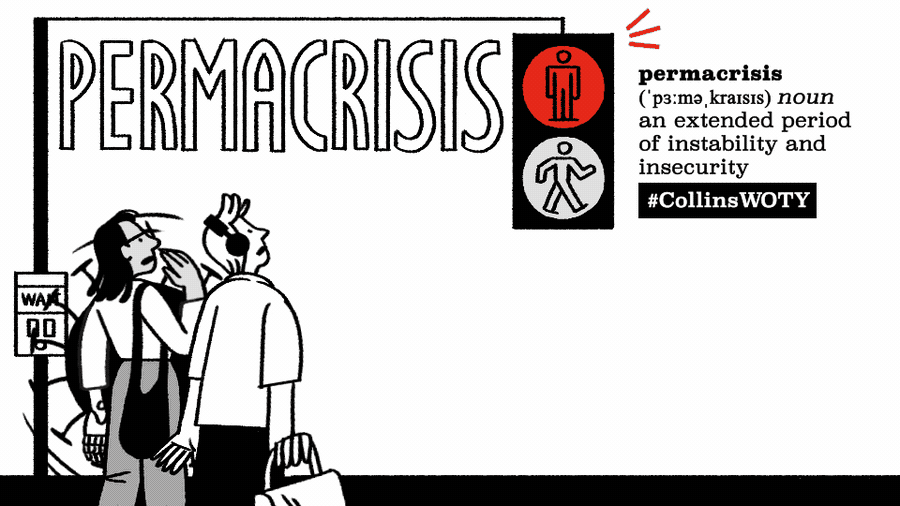With the end of yet another year, most dictionaries announce their word of the year. This word sums up how the English language morphed in the preceding 12 months, to recognize a trend in mainstream vernacular and comment on the human condition at that moment in time. So what did the various lexicographers choose as their word for 2022, one that reflects the world around us in that period?
The Oxford Dictionary which was chosen by the public for the first time is “goblin mode”.
According to Oxford University Press (OUP), publishers behind the Oxford English Dictionary, the slang term refers to a type of behaviour that is unapologetically self-indulgent, lazy, slovenly, or greedy, typically in a way that rejects social norms or expectations – traits that may have become familiar to many during the lockdowns. Social media can portray idealised versions of self-improvement, from waking at 5 a.m. and drinking a green smoothie, to keeping a journal, exercising and planning your weekly meal prep. That era may be on the way out. In its place is goblin mode – the opposite of trying to better yourself.
A group of lexicographers at OUP gave people a choice of: “Goblin mode,” “metaverse,” and “#IStandWith.” “Goblin mode” triumphed, racking up 318,956 votes or 93% of the total. “Metaverse” came in second and “#IStandWith” came third. ‘Goblin mode’ was the most popular word because it resonates with all of us who are feeling a little overwhelmed at this point. It’s a relief to acknowledge that we’re not always the idealised, curated selves that we’re encouraged to present on our Instagram and TikTok feeds. Although first seen on Twitter in 2009, goblin mode went viral on social media in February 2022, quickly making its way into newspapers and magazines after being tweeted in a mocked-up headline. The term then rose in popularity over the months following as Covid lockdown restrictions eased in many countries and people ventured out of their homes more regularly. Seemingly, it captured the prevailing mood of individuals who rejected the idea of returning to ‘normal life’, or rebelled against the increasingly unattainable aesthetic standards and unsustainable lifestyles exhibited on social media.
Over at Merriam-Webster, gaslighting is their word for 2022. In this age of misinformation, of fake news, conspiracy theories, Twitter trolls, and deepfakes, gaslighting or the act or practice of grossly misleading someone, especially for one’s advantage was looked up 1740% more in 2022 with high interest throughout the year. The word comes from the title of a 1938 play and the movie based on that play, the plot of which involves a man attempting to make his wife believe that she is going insane. His mysterious activities in the attic cause the house’s gas lights to dim, but he insists to his wife that the lights are not dimming and that she can’t trust her perceptions.
‘Permacrisis’, a term that describes ‘an extended period of instability and insecurity, has been named Collins Word of the Year 2022. It is one of several words Collins highlights that relate to ongoing crises the UK and the world have faced and continue to face, including political instability, the war in Ukraine, climate change, and the cost-of-living crisis. Six words on Collins’ list of ten words of the year are new to CollinsDictionary.com, including ‘permacrisis’.
At the Cambridge Dictionary, homer, or the informal American English term for a home run in baseball was the word chosen to represent 2022. The word saw more than 65,000 searches for homer on May 5, when it was the answer to that day’s Wordle with 95% of searches outside North America.
I had not heard of Oxford’s word of the year, but I am loving it and I am going to use it as much as I can this year. What is your favourite word of 2022?




